Welcome the New Marlboro Institute Faculty (Part 2)
This is the second of two parts introducing the Emerson community to new faculty in the Marlboro Institute of Liberal Arts and Interdisciplinary Studies.
Read: Welcome the New Marlboro Institute Faculty (Part 1)
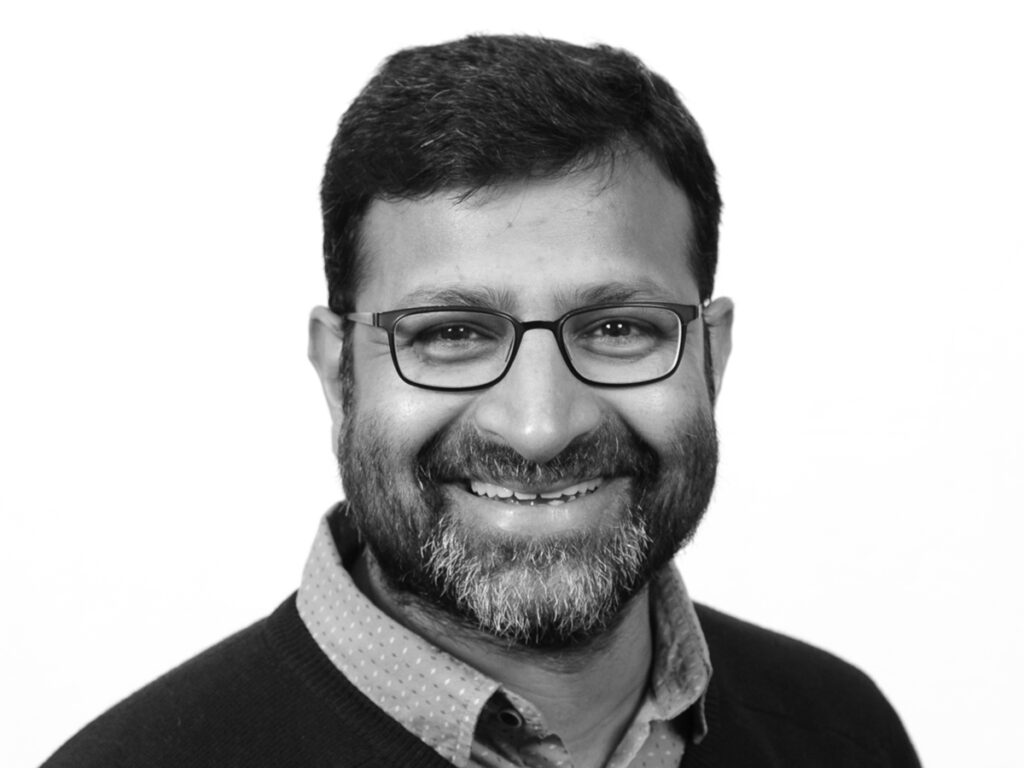
Amer Latif
Associate Professor
Amer Latif is an interdisciplinary scholar specializing in comparative religion and Islamic studies. Broadly speaking, his research revolves around issues involved in the translation of cultures. Having grown up in Pakistan, and with an undergraduate degree in Physics, Latif thrives on studying and creating containers that are capacious enough to hold seeming contradictions, such as science and religion, East and West. He holds a PhD in Comparative Studies from Stony Brook University, and joins Emerson after having taught for many years at Marlboro College.
ET: What do you want your students to learn from your class?
AL: I want students to learn the power of limits; that creativity requires structure. I want them to see that the poetic and analytic sensibilities are complementary, rather than at odds, and that living a good life requires the cultivation of both the poetic and the analytic modes of perception. Ultimately, I want them to be able to see others in themselves and themselves in others.
ET: What was the last thing you learned?
AL: It takes me about an hour to hike 3 miles through a mountain trail to a friend’s house.
ET: What do you like to do when you’re not working?
AL: Cooking, hiking, making music.
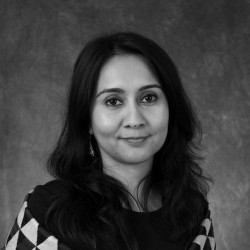
Rituparna Mitra
Assistant Professor
Rituparna Mitra has always been drawn to questions of how we create and sustain community, finding herself seeking answers at the intersection of literature, culture, and politics. She believes that these reflections and practices remain more urgent than ever today, when globally, the world is witnessing more and more people living on the edges of abandonment. She currently is finishing her first book, which examines the trauma of displacement and conflict in post-Partition South Asia, as represented in five writers who have been largely ignored in literature usually framed as postcolonial: Amrita Pritam, Qurratulain Hyder, Agha Shahid Ali, Githa Hariharan, and Akhtaruzzaman Elias. She is developing a second book project around the role of death, ruin, and repair work in cities of the Global South, where debris and detritus often become the site for an emergent community based on the relationality of human and non-human.
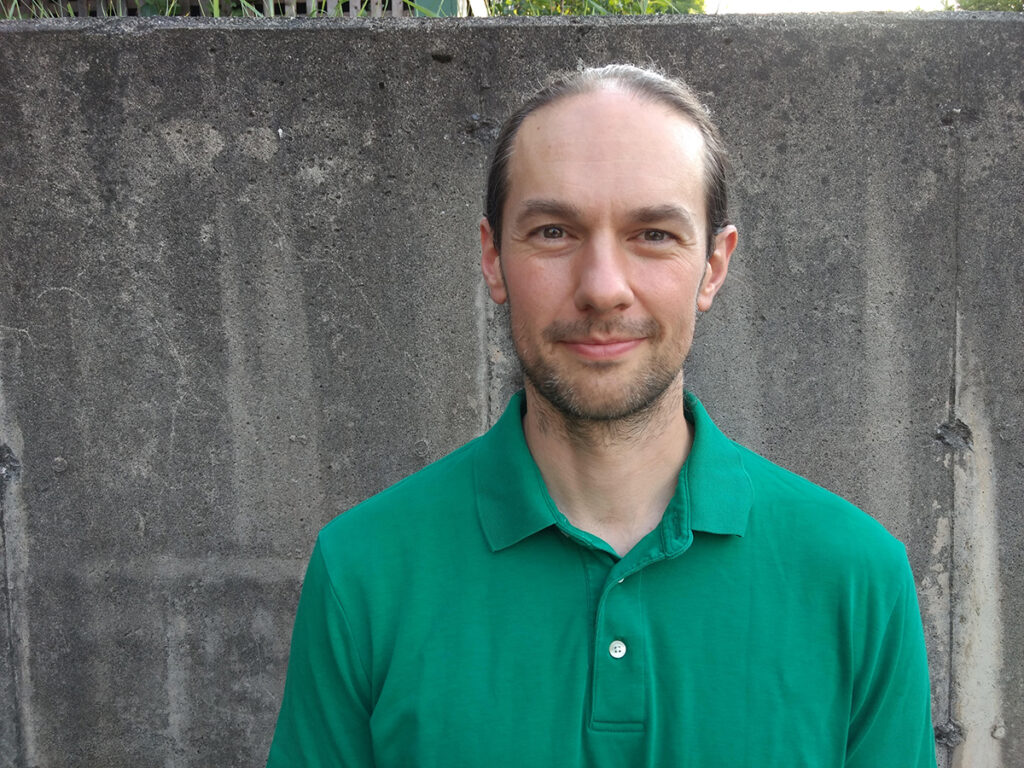
Adam Franklin-Lyons
Associate Professor
Adam Franklin-Lyons is interested in almost anything medieval. He first worked in archives in Catalonia and Valencia, investigating famines in the western Mediterranean. A monograph based on that work is under contract with Pennsylvania State University Press. Currently, he participates in the Travelers Lab at Wesleyan University. The Lab uses computer-based analysis such as GIS to study patterns of mobility and communication. It also invites undergraduates to participate directly in the research of the Lab. As part of this project, Franklin-Lyons led a group of Marlboro College faculty members funded by the National Endowment for the Humanities in developing an undergraduate curriculum combining data science and humanities methods of research in the classroom and in projects addressing social questions in the local community.
ET: What do you want your students to learn from your class?
AF-L: I want my students to get into the habit of constantly asking questions – about what they know, how they know it, and what information they need to come to new conclusions. I think asking questions as a response to the world is a key part of a liberal arts education.
ET: What was the last thing you learned?
AF-L: I just spent a couple of hours learning about the Jamaican leaf called callaloo (related to amaranth) and how to cook it. It was something I hadn’t eaten before….
ET: What do you like to do when you’re not working?
AF-L: …Which relates directly to what I tend to do outside of work: I enjoy shopping for food and cooking, as well as ice skating as often as possible.

Todd Smith
Associate Professor
Todd Smith has taught courses in chemistry, biochemistry, human physiology, and molecular biology, while working with students in tutorials on topics ranging from avian physiology to Alzheimer’s disease and neuronal function. He likes “exposing students to as many ways to explore as they can,” with texts, current research articles, labs, and fieldwork. In addition to encouraging an understanding of the social relevance of chemistry and biochemistry, Smith helps his students see the relevance of sharing findings. As a doctoral student at the University of Rhode Island, he studied heat-shock proteins, which provide cells temporary protection from environmental shocks. His current research focuses on anti-freeze proteins in fish, and how fish control the timing and production of those proteins. Smith has been an ad hoc reviewer for the journal, Marine Ecology Progress Series.
ET: What do you want your students to learn from your class?
TS: Students will develop the technical understanding and a conceptual framework to evaluate and respond to news and discussions about molecular genetics research, and how that research may be used or misused in our society.
But I hope the more long-lasting effect of the course is the tools the students develop, such as an understanding of science as an iterative process based on empirical evidence; a belief in their own ability to tackle large projects involving intellectual challenge; an approach to problem-solving that involves approaching big problems by breaking them down into a series of smaller problems.
ET: What was the last thing you learned?
TS: I learned that my homemade pizza oven is too small, and that splitting a rock to make a new base for a larger oven is time-consuming.
I also learned that researchers don’t consider dingoes to be just another type of dog, and that in addition to molecular genetics evidence, they cite behavioral characteristics, such as their escape-artist abilities, restlessness in captivity, and disinterest in pleasing human companions.
ET: What do you like to do when you’re not working?
TS: I like to grow vegetables and berries, take canoe rides, go backcountry skiing, and play softball, but usually spend more time inefficiently jumping from one half-finished home project to the next.
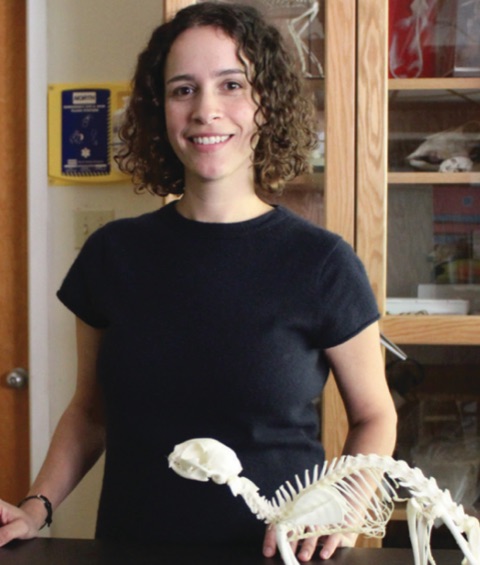
Jaime Tanner
Associate Professor
Jaime Tanner is coming to Emerson after teaching biology and environmental studies courses at Marlboro College for 10 years. She received her PhD in Zoology and Ecology, Evolutionary Biology, and Behavior from Michigan State University, and held the Darwin Postdoctoral Fellowship at the University of Massachusetts Amherst from 2008-2010. Tanner’s research has focused on the relationship between feeding behavior and skull morphology, primarily in carnivorous mammals. This work takes an integrative approach, combining behavioral field work, performance data, and work with museum collections to understand the shifting relationship between form and function throughout development and in response to environmental changes.
ET: What do you want your students to learn from your class?
JT: How to think critically and creatively about the natural world.
ET: What was the last thing you learned?
JT: I learned how to make new, really good bagels.
ET: What do you like to do when you’re not working?
JT: Spending time with my family, drawing, hiking, cooking, and cross-country skiing.
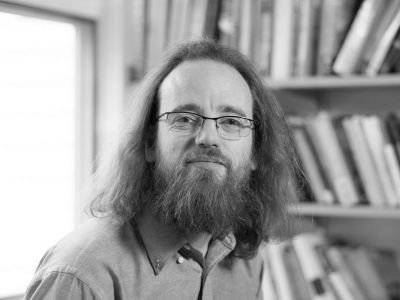
Matt Ollis
Associate Professor
Matt Ollis earned his PhD in Mathematics from Queen Mary, University of London, in 2003. His research is in combinatorics and design theory, where, for the most part, he constructs finite mathematical structures with large amounts of symmetry. For the last 16 years, Ollis has taught at Marlboro College. His teaching there ranged across most of the typical, and some atypical, topics of undergraduate mathematics, and also strayed into computer science, game studies, cartography, and environmental studies. Recently, he has been part of a group of Marlboro faculty members funded by the National Endowment for the Humanities to develop an undergraduate curriculum that involves combining data science and humanities methods of research to address practical social questions in the local community. He is looking forward to continuing and expanding this work at Emerson.
Categories